‘The Case for Community Wealth Building’: review
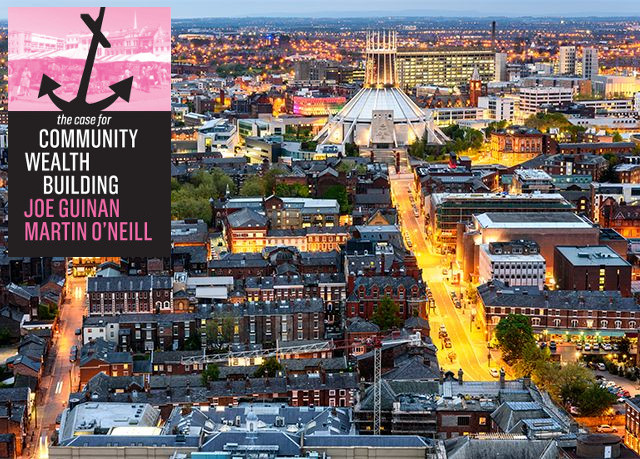
This is the first of three articles in three days about ‘community wealth building’ (CWB) and mutual credit. Today we’re explaining community wealth building, and reviewing a book: The Case for Community Wealth Building. Tomorrow we’ll blog about how mutual credit can help post-Covid communities, and on Monday, Dil Green continues the theme, explaining how CWB and mutual credit is a match made in heaven.
Community wealth building is is exactly what it says on the tin – a way of helping build wealth in communities, and to prevent it from leaking away. It’s the philosophy behind the ‘Preston Model’, in which local authorities’ procurement policies are oriented towards local companies, and if no local companies exist to provide a particular service, the council will train local people to start a co-op. It’s an idea that’s championed in the UK by CLES (the Centre for Local Economic Strategies), based in Manchester.
I recently read The Case for Community Wealth Building, by Joe Guinan of the Democracy Collaborative and the Next System Project, and Martin O’Neill, senior lecturer in political philosophy at the University of York. Here’s a review, plus some more thoughts about CWB.
CWB is described in the introduction as supporting ‘democratic collective ownership of the local economy through a range of institutions and policies. These include worker co-ops, community land trusts, community development financial institutions, so-called ‘anchor institution’ procurement strategies, municipal and local public enterprises, and public and community banking’.
We’re involved in launching mutual credit networks in the UK (here’s an introduction), and it immediately struck me that mutual credit was missing from the CWB toolkit. Mutual credit may well turn out to be crucial in dealing with the economic crash brought on by the response to the Covid crisis, as it’s a moneyless trading system – pretty important, I would have thought, in a world where money is extremely scarce. We’re talking with CLES about just that – including mutual credit in the package that they’re rolling out to local authorities around the country.
For me, the two main common-sense ideas behind CWB are:
- Rather than use tax and spend policies to redistribute wealth that has been sucked out of our communities and concentrated in very few hands, it would be much more sensible to build an economy that doesn’t suck wealth out of our communities in the first place. This means local economies that are not dominated by corporate branches. This extraction of wealth has led to a situation where the income share of the wealthiest 1% of the UK rose from 6% in 1979 to 15% in 2013, and continues to rise.
- It’s impossible to have a truly democratic society when the institutions that comprise it are not democratic. People employed in undemocratic workplaces are drained of agency, which is bad for democracy and bad for society overall.
The policy is based on the idea of ‘anchor institutions’ – big organisations that are rooted in place in the community – like hospitals, universities, schools, even police stations. The anchor institutions move their procurement to local businesses – caterers, cleaners, small farmers, couriers, security – anything. The approach has worked really well in Preston. Between 2012 and 2017, procurement within Preston increased from 5% to 18.2% and within Lancashire from 39% to 79.2%. That seems like real community wealth building to me – and to others, obviously, as Preston was named ‘UK’s most improved city’ in 2018.
The idea came from Cleveland Ohio, where a network of co-ops have been set up within a not-for-profit ‘community corporation’ that steers a percentage of profits into a fund to set up other co-operative and worker-owned ventures within the city, and prevents them from being sold to conventional corporations.
Other councils are very interested in the idea, and recently, North Ayrshire council adopted the CWB strategy in the face of the Covid crisis. This is where CWB and mutual credit can come into their own I think. Who knows, when the crisis is over, we may have a network of council re-oriented towards sustainability and community resilience. According to the book, the NHS has embraced the anchor mission too (although no source was provided) – wouldn’t it be great if hospitals started to become anchor institutions all over the country?
This is encouraging, as the economic strategy of most local authorities is to attract large corporations, possibly with tax incentives, with no thoughts about where the profits will end up (tax havens, mainly). This is incredibly short-sighted, encouraging as it does the hoovering of wealth out of their towns, and condemning local workers to the awful conditions in Amazon warehouses and the like. But it’s not down to greed or spite on the part of local authorities, just lack of understanding that there are alternatives. Hopefully, this book, and CLES, can bring those alternatives to the attention of as many councils as possible.
Owning the economy ourselves is not pie-in-the-sky. The book points out that over 130 million Americans are members of some sort of co-op, and that US credit unions hold over $1 trillion in assets – making credit unions, collectively, bigger than Goldman Sachs.
The CWB idea has it critics. Here are the 3 major criticisms they receive.
- It’s protectionist and therefore inefficient: every council in the UK employing this strategy will make the UK poorer, by not taking advantage of economies of scale and cheaper prices elsewhere.
- It could end up in cronyism, when other criteria are taken into account other than just price.
- Too many meetings – most people don’t want to be involved in economic decision-making.
However, Preston and Cleveland have definitely become better places to live. Isn’t that the goal, really? It’s difficult to argue against that. But to counter those three criticisms specifically:
- The first is a classic economists’ argument. But economists are always arguing for some ideal economic situation, that doesn’t involve tax havens, zero hours contracts etc. In the real world, local people in Preston benefit from CWB. So what if services might be a bit more expensive, if locals are earning more, and getting a better quality of life? What good is efficiency if only external shareholders gain, not local people? Another thing to remember (in the real world) is that shorter supply chains mean less environmental damage. Economists understand ‘the price of everything, but the value of nothing’, as they say.
- The second is again, trying to compare a future democratic economy with an ideal, squeaky-clean current one – that isn’t dominated by giant corporations that corrupt democracy at a global scale (as well as just pure venal corruption – think Enron, Capita, Carillion). Let’s compare like with like. At least people can get involved in politics locally, and demand transparency, which is impossible at the multinational, corporate scale.
- Third – at least the option would exist. Mondragon is an example of an extremely successful co-op network where people can join decision-making groups if they want to, and not if they don’t. I’d trust my fellow locals to make decisions on my behalf much more than I’d trust corporate representatives.
I found the ideas in this book exciting. Just a couple of little criticisms of my own.
- In several places, this is described as a strategy for the left. But why? I’m guessing that Trump supporters would love it – although not if it’s labelled ‘left’. Why alienate half of your potential support by labelling it left or right? It’s something I’ve never understood: the left / right battle seems like a lose-lose (while corporations win) scenario.
- And secondly, in the preface it mentions that parts of the book were written in the ‘Art Nouveau surroundings of the Writers’ House Residence in Tbilisi’. Now it’s difficult to get to and from Tbilisi without giving money to wealth-extracting corporate airlines and oil companies (as well as contributing to ecological damage), so reading that was a bit disappointing.
 About the author
About the author
Dave Darby lived at Redfield community from 1996 to 2009. Working on development projects in Romania, he realised they saw Western countries as role models, so decided to try to bring about change in the UK instead. He founded Lowimpact.org in 2001, spent 3 years on the board of the Ecological Land Co-op and was a founder of NonCorporate.org. and the Open Credit Network.
The views expressed in our blog are those of the author and not necessarily lowimpact.org's




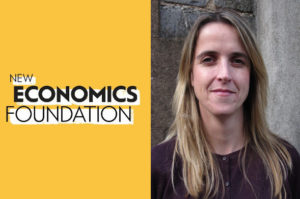 Community Wealth Building: Frances Northrop of the New Economics Foundation
Community Wealth Building: Frances Northrop of the New Economics Foundation
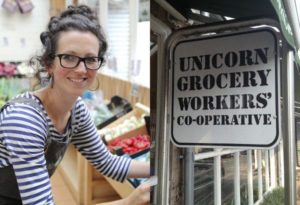 How to start a co-operative grocery in your town: Debbie Clarke of Unicorn Grocery, Part 2
How to start a co-operative grocery in your town: Debbie Clarke of Unicorn Grocery, Part 2
 Post-corona: ‘getting back to normal’ is not just a bad idea – it’s suicidal
Post-corona: ‘getting back to normal’ is not just a bad idea – it’s suicidal
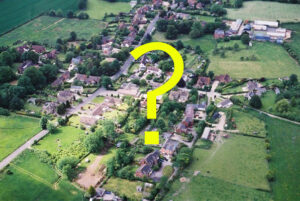 What post-Covid communities could look like, if enough of us want it
What post-Covid communities could look like, if enough of us want it
 Why we need social care co-ops: Graham Mitchell of Co-operative Care Colne Valley
Why we need social care co-ops: Graham Mitchell of Co-operative Care Colne Valley
 CoopCycle Federation: aiming for a bicycle courier co-op in every town
CoopCycle Federation: aiming for a bicycle courier co-op in every town
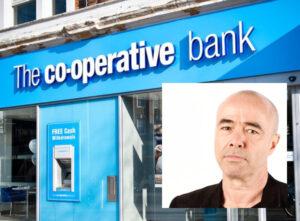 Re-cooperativising the Co-op Bank? Shaun Fensom of Save Our Bank
Re-cooperativising the Co-op Bank? Shaun Fensom of Save Our Bank
 Jon Hallé: Introducing the Big Solar Co-op, and how you can help renewables and the co-op sector
Jon Hallé: Introducing the Big Solar Co-op, and how you can help renewables and the co-op sector
 How you can help get solar onto more roofs in your community: the Big Solar Co-op
How you can help get solar onto more roofs in your community: the Big Solar Co-op
 Village halls – a sustainable success story
Village halls – a sustainable success story
 Lowimpact jobs board launches!
Lowimpact jobs board launches!
 Co-operatives
Co-operatives
 Commoning
Commoning
 Community
Community
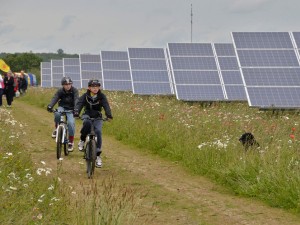 Community energy
Community energy
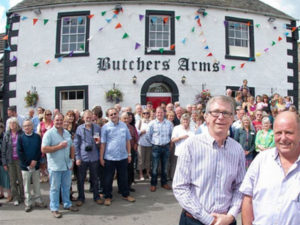 Community land trusts
Community land trusts
 Community-supported agriculture
Community-supported agriculture
 Low-impact money
Low-impact money
 Low-impact shopping
Low-impact shopping
 Mutual credit
Mutual credit
 Housing commons
Housing commons


